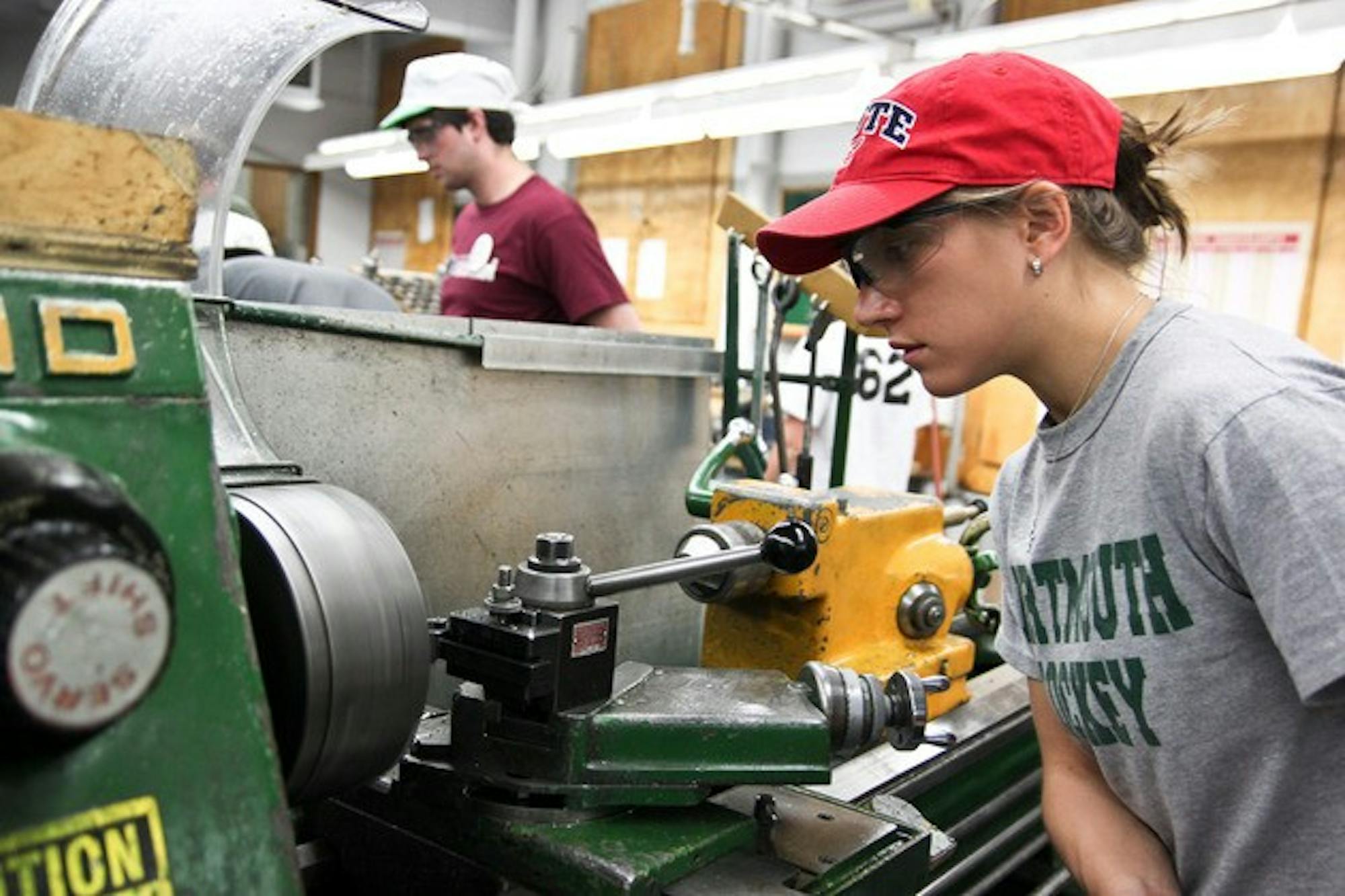Nationally, less than 20 percent of engineering degrees are awarded to women, but approximately 33 percent of Dartmouth's engineering students are female, according to Thayer's assistant Dean for Academic and Student Affairs Carrie Fraser '87. The relatively high number of female engineering students is representative of the uniquely welcoming culture at Thayer, Fraser said.
"There's a sense of community here," Fraser said. "We actively encourage teamwork on studying and projects, and the willingness of faculty and students to help out makes a lot of women feel like they can hold their own in this environment."
Current engineering students agreed with Fraser, including Noam Rosenthal '13, who plans on completing the five-year Bachelor of Engineering degree with a major in bioengineering.
"People who are in engineering are the most helpful people at this school," Rosenthal said. "I'll sometimes have to call people at 2 a.m. for problem set help, and somebody is always able to help me out."
Students and faculty members also suggested that Thayer's interdisciplinary approach to its engineering programs, based in the liberal arts, is more appealing to women than a typical course of study. Since undergraduates majoring in engineering still have to complete distributive requirements and can combine their major with other fields, Thayer's program is vastly different from those at most universities, which solely emphasize engineering.
"It's structured so that you can do other things," Stephanie Wolf '12 said. "I don't think I would've gone into engineering at any other college, because here you don't just apply to engineering school, which is what my brother had to do at University of Michigan." Fraser also lauded the Women in Science Project and the Society of Women Engineers as two contributing factors to the high number of female engineering students at the College. WISP awards grants for research internships to female students, and SWE offers support and role models for female engineering students. This year, 28 percent of WISP interns are conducting research with engineering professors, which Fraser described as significant because female engineering students are a relatively small percentage of female science students in general. Despite these significant efforts, students said the environment for female engineers at Dartmouth could improve. One common complaint of female engineering students at Thayer is the lack of faculty efforts to actively recruit women to study engineering.
"There's not enough encouragement right off the bat," Chloe Ruiz-Funes '13 said. "Nobody sits [freshmen women] down and says, If you're interested in this, here's what you should do.' For a girl who's not like me, who doesn't know what they want from the beginning, there needs to be more encouragement." Rosenthal expressed similar dissatisfaction, explaining that she was originally interested in studying biology but was encouraged to try engineering by an older female student in a math class she took her freshman year. She said that many other women seem to stumble upon engineering in a similar fashion. Engineering professor Vicki May said that although Thayer is a "fairly friendly place for women," less than 20 percent of the faculty is female, and hiring more women engineers could positively impact the program by providing more role models for students. Students and faculty who voiced criticisms of engineering at Dartmouth nevertheless stressed the positive aspects of the Thayer environment, and Fraser cited her own undergraduate experience in order to emphasize the general feeling of satisfaction with Dartmouth's engineering program.
"I graduated in '87, and it felt the same way over 25 years ago, even though the ratio [of women to men] was probably one out of 10," Fraser said. "The culture at Thayer has always been very welcoming, and I think that the experience here leads to confidence later in your career."
Separate from Thayer, other College programs are working to support female engineers at later stages in their careers.
Later this term, the Tuck School of Business will host the Society of Cable Telecommunications Engineers-Tuck Executive Leadership Program, which will focus on opportunities for female engineers in executive positions at cable telecommunications companies. The conference, being held at Tuck April 29 to May 4, is not directly associated with the engineering program at Dartmouth but focuses on helping experienced female engineers assume major leadership roles in large companies.
The program is a collaboration between the Society of Cable Telecommunications Engineers and Tuck Executive Education, and it is sponsored in part by Time Warner Cable Chief Executive Officer Glenn Britt '71 Tu '72. It will coach executives on how to rise to the top levels of administration in the cable industry. Participants in the program are typically engineers with extensive backgrounds in business administration, according to Clark Callahan, head of Tuck Executive Education.




